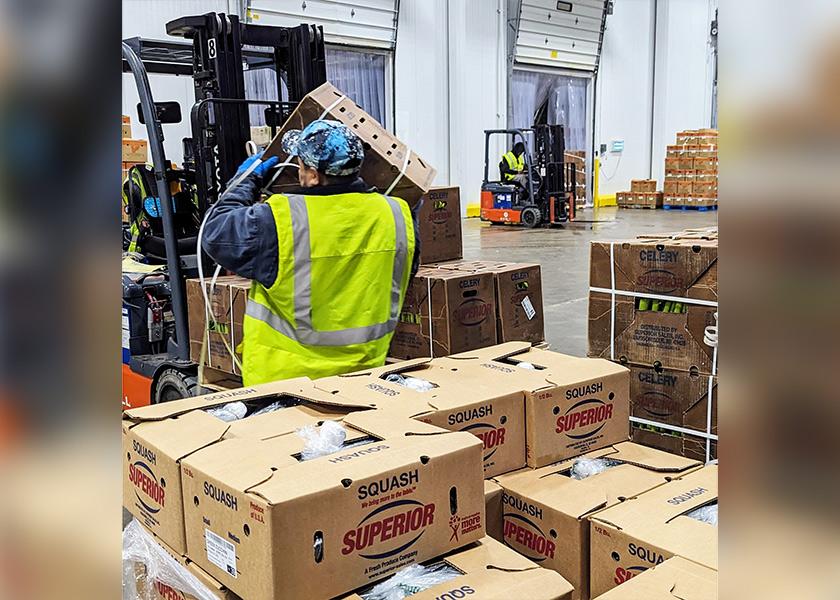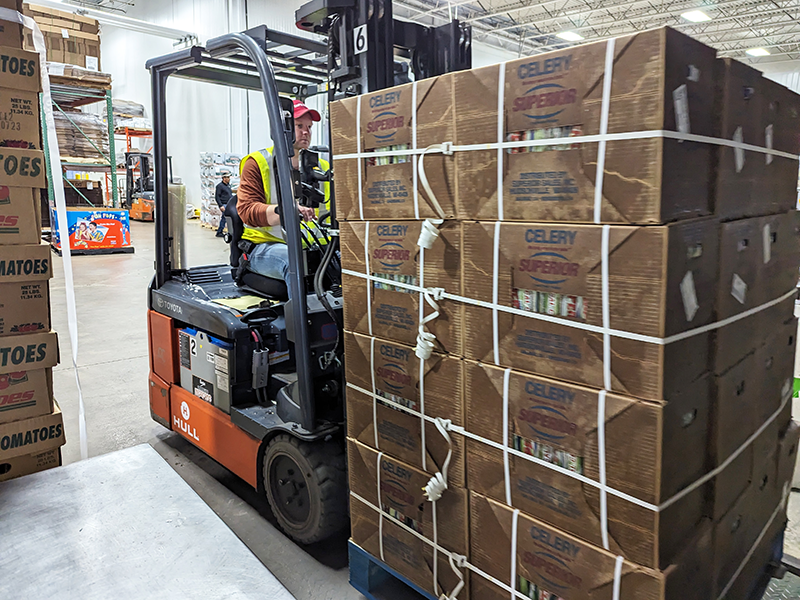Summer sales strong in Michigan

The season may have gotten off to a later start than usual, but Michigan produce distributors say they’re seeing a superb summer so far.
“Business has been pretty good,” said Randy Vande Guchte, president of Superior Sales Inc., Hudsonville, Mich.
“It’s been a little bit of a slow start,” he said, due in part to the Canadian wildfires that blew smoke over much of the growing region.
“A lot of theories are that, with all that smoke, the bees didn’t want to work,” Vande Guchte said. “We had some pollination problems with cucumbers, zucchini and yellow squash, so we had light volume to start.”
By late July, though, the amount of fruit produced per acre was up significantly over just a few weeks earlier.
Superior Sales had finished its asparagus program and was shipping lettuces, radishes, cabbages, corn and celery by the third week of July.
“We carry a full line of wet and dry vegetables,” Vande Guchte said.
Business also was going well at Ben B. Schwartz & Sons on the Detroit Produce Terminal.
“Summer has been good,” said Jordan Grainger, vice president of sales and business development.

Sales were up slightly at the company, where strawberries, watermelons, corn, bell peppers, chili peppers, squash, soft fruit and grapes are among its most popular summer items.
Much of the company’s summer commodities are grown in or near Michigan.
“When it’s been grown hours away, we can get it to the customer on the day of harvest or the next day,” Grainger said.
The company also has a select organic category that consists of blackberries, blueberries, raspberries, grapes, peppers and certain other items.
“Our business on organics with our current customers is growing,” he said, though organics is not a large part of the company’s sales.
It’s a busy time of year on the market, said Dominic Russo, buying and selling director at Rocky Produce on the Detroit Produce Terminal.
“2023 has been an up year,” he said. “We’re pushing a lot of fruit, and Michigan veg is coming in.”
Tomatoes, bell peppers, corn and squash are some of the company’s main items.
Rocky Produce also offers a number of organic items, including apples, berries, tree fruit, grapes and salad mixes, he said.
This has been an unusual season, said Rick Sible, who handles business development, sales and logistics for Rice Lake Farms Packing, Grant, Mich.
“A cold start to spring delayed our normal planting windows of opportunity,” he said. “Winter didn’t want to let go.”
That delayed the preparation of fields for plantings by two or three weeks all across the Eastern Seaboard, he said.
The area’s moist, muck soil with an abundance of nutrients makes good growing conditions for some items that aren’t exactly mainstream, like red beets, parsnips and purple-top turnips, he said.
Related: Another big Michigan apple crop on tap
The turnips are great for flavoring in soups, stews and when slow cooking a roast, Sible said.
Like their counterparts throughout the U.S., rising costs have had an impact on Michigan produce suppliers.
Inflation is affecting growers the most, said Vande Guchte of Superior Sales.
“We’re paying more money for help every year,” he said, for workers obtained through the Department of Labor’s H-2A program, as well as local workers.
On the positive side, the price of diesel fuel has come down, as have freight rates.
“[Freight rates] were astronomical in 2020 and 2021,” he said. “In 2022 and this year so far, they’ve been a lot more reasonable.”
Inflation has impacted sales of some items, said Grainger of Ben B. Schwartz, as consumers substitute less expensive commodities or switch to a different grade or variety.
Sible of Rice Lake Farms Packing said there’s been a scarcity of some unique components needed to keep equipment running on the farm.
Diesel prices have softened, he added, “but I don’t think they’ll ever hit the same level where they once were.”







